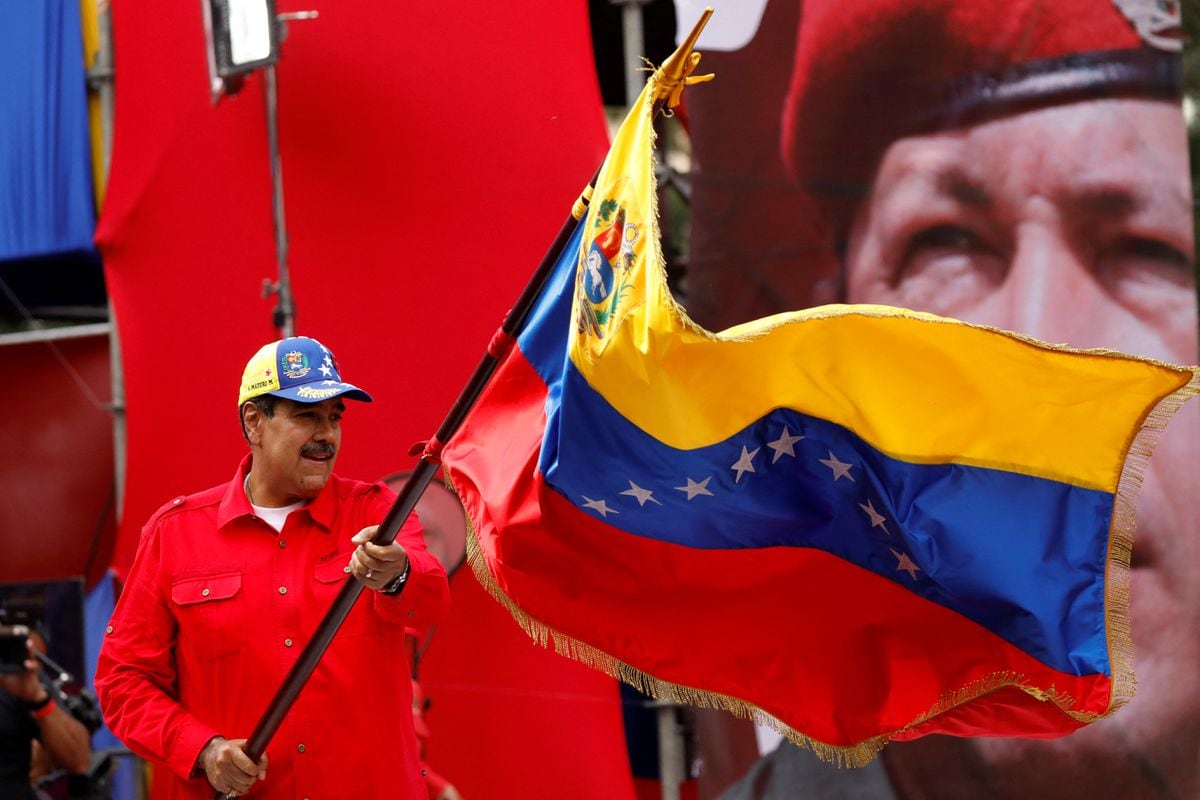Chavismo seems to have reversed course.
The progress that the Barbados agreements meant, the recovery of certain diplomatic interlocution achieved by Venezuela in recent months - including credentials of new ambassadors previously downgraded to those in charge and direct talks with the United States after years of hostilities - and the possibilities of resolving the The prolonged institutional crisis that the South American country is experiencing in elections seems to have been left behind in the face of the new repressive escalation of the Government of Nicolás Maduro.
In less than three months there have been more arrests of opponents, the candidacy of María Corina Machado, the main leader to confront the leader of the United Socialist Party of Venezuela, was blocked and Rocío San Miguel, a visible human rights defender, was imprisoned. dedicated to monitoring the National Armed Forces.
Internally, Chavismo has returned to strategies already used to corner its adversaries.
But the incipient scaffolding that he had managed to rebuild at the international level with which he sought to regain legitimacy, after years of pressure through sanctions and the breaking of diplomatic relations in reaction to the authoritarian drift that the country experienced, seems to be crumbling again.
Chavismo has denounced a series of conspiracies to assassinate Maduro and has used them as a justification to leave the Barbados agreements, which had already been questioned by the movements of the Supreme Court of Justice to annul the primaries and prevent participation. by Machado.
This has cost him the flexibility of the sanctions regime that he had agreed directly with Washington to end after two months, after having achieved a slight improvement in oil production, the opening of the sector to foreign companies and the return of the businessman. Alex Saab, a Government financial operator who became key in times of greater sanctions.
This week, in the midst of the tension that the detention of lawyer Rocío San Miguel and the violations of due process in her case have raised in the ecosystem of human rights organizations, among which her defenders include forced disappearance, the Government has decided to expel the representatives of the United Nations High Commissioner.
A publication on the organization's X account, in which it expressed its deep concern about the arrest of San Miguel, has led to the measure announced by Venezuelan Foreign Minister Yvan Gil.
Foreign Minister Yván Gil in Moscow (Russia), in 2023.Alexander Zemlianichenko (AP)
The reaction of rejection in the region has been a chain reaction.
Argentina, Costa Rica, Ecuador, Paraguay and Uruguay have already raised the first red flags.
A diplomatic siege on Venezuela could be rising again, despite the international community's attempts to normalize relations with the oil country.
The office of the High Commissioner for Human Rights was installed in 2019 after years of much pressure from civil society on the rights situation in Venezuela.
Maduro authorized the coming of the Geneva presenters, after spending years denying the humanitarian crisis, which also had a correlation in political freedoms.
At the same time that social indicators worsened, repression in the country also increased.
“At that time with Michelle Bachelet, the Government was more willing to submit to the protection mechanisms to say that they are guarantors of human rights, although before they denied the repeated violations that had been reported,” says Ezequiel Monsalve, of the NGO Defiende. Venezuela.
Even with extremely limited work, for civil society organizations the departure in 72 hours of the representatives of the United Nations High Commissioner will have consequences in the protection of rights in the country, the access of rapporteurs to the country that was opened in recent years and in the technical assistance of the authorities.
“If with their presence here we were at risk, now even more so,” warns Monsalve.
The activist points out that the representatives had great difficulties visiting the prisons where the more than 200 political prisoners still in Venezuela are held.
But the repeated complaints of extrajudicial executions in poor neighborhoods at the hands of the FAES (the special forces of the Bolivarian National Police) finally managed to dismantle that police force - although its actions were transferred to other organizations - and the lethality of these incursions decreased. police.
Some analysts warn that Venezuela is moving towards a process similar to that experienced in the Nicaragua of Daniel Ortega and Rosario Murillo in recent years.
Added to what has happened in recent weeks are signs such as the intervention of international organizations as was done with the Venezuelan Red Cross and the promotion of legislative initiatives that seek to criminalize NGOs, which the National Assembly is currently discussing.
Last year, Chavismo seemed determined for moderately competitive elections in which it could still control the result and retain power.
Maduro's hardening in the face of his adversaries takes a breath particularly after the success of the opposition primary elections, in October 2023, and the resounding victory obtained in them by María Corina Machado, the most anti-Chavista candidate of all, now elected leader, who currently has four times as much voting intention as Nicolás Maduro, according to the polls.
Follow all the information from El PAÍS América on
and
X
, or in our
weekly newsletter
.

